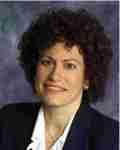The U.S. economy is projected to create as many as 21 million job openings through 2020. If current trends prevail, shortages of qualified candidates are likely in science, technology, engineering and mathematics (STEM) fields and some health care categories, according to McKinsey Global Institute’s “An Economy that Works” report.
The national picture holds true in New York as well. The demand for middle-skill workers–those with more than a high school diploma but not a four-year degree–is projected to remain high through 2018, with 39 percent of all job openings requiring associate degrees or vocational credentials.
Yet gaps in skills threaten to undermine these opportunities for the workforce. It could mean thousands of well-paid jobs in areas ranging from construction and manufacturing to computers, health care, and the STEM fields possibly going unfilled, according to the National Skills Coalition’s “New York’s Forgotten Middle-Skill Jobs” report. In response, Monroe Community College has partnered with Economic Modeling Specialists, Inc. to provide a free web-based, career-exploration tool anyone in New York State can use to find out which jobs are in demand, help clarify their occupational interests, and chart their career path.
MCC Career Coach provides up-to-date local employment data, such as current and projected job openings within 100 miles of Rochester, estimated earnings, and occupations that require similar skills and knowledge, as well as specific MCC educational programs that will prepare an individual for a given profession. The data come from nearly 90 federal, state and private sources, including the U.S. Department of Labor, Census Bureau and Indeed.com jobs listing site. This tool provides users with a clear connection between a particular program of study and tangible opportunities in the job market.
Todd M. Oldham is Vice President of Economic Development and Innovative Workforce Services Division at Monroe Community College. MCC is an active member of the Finger Lakes STEM Hub.




 Posted by Sara
Posted by Sara 